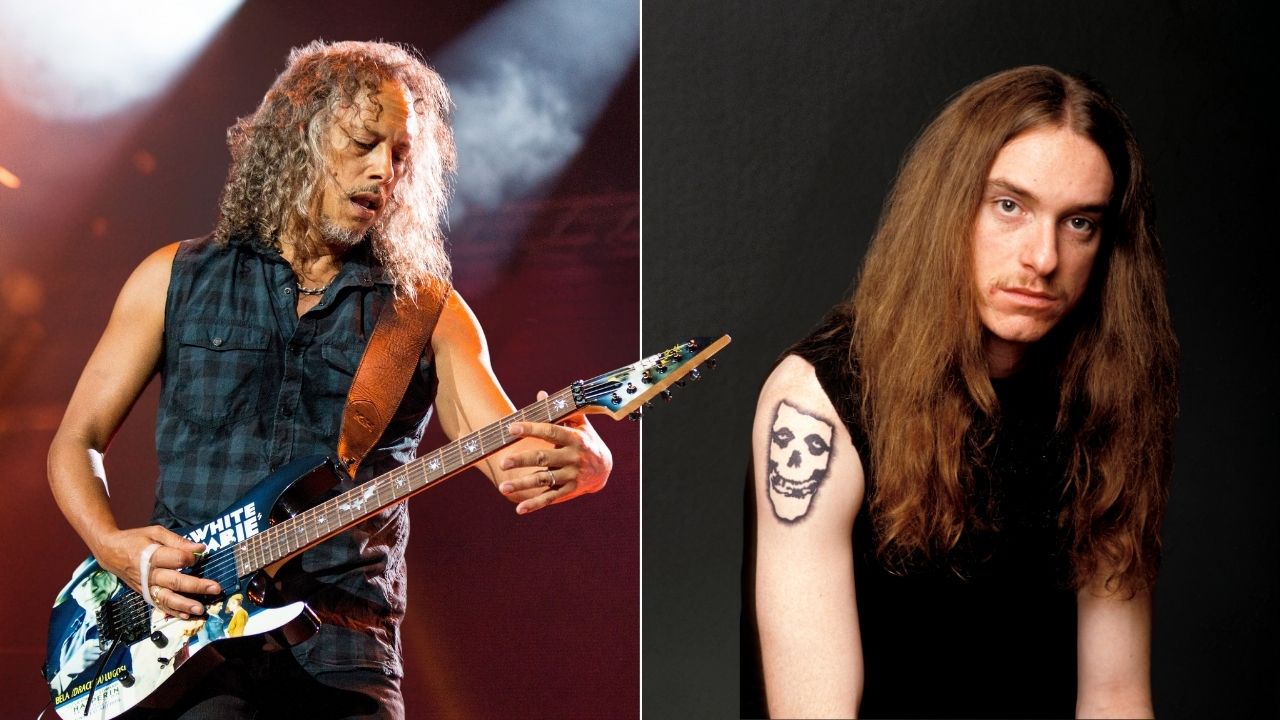Kane Roberts on rejoining the Alice Cooper band following Nita Strauss's departure, adjusting to a Kemper and the revival of his fabled machine gun guitar
It was decades since Roberts had assumed the role of six-string sideman to one of rock's most towering figures. But that didn't stop him from throwing himself at the opportunity to accompany Cooper on the shock rock legend's recent US trek
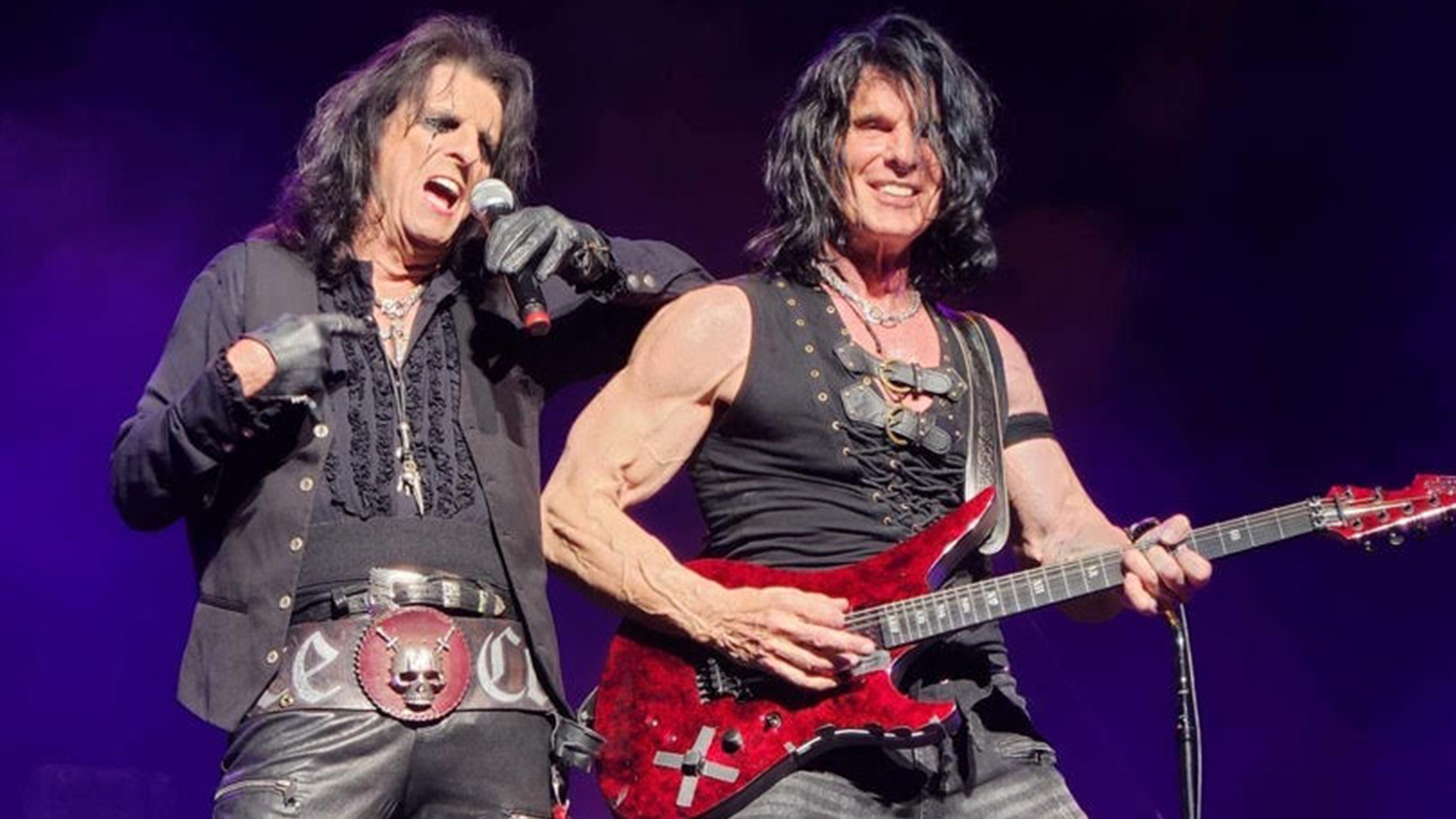
When the announcement was made that Nita Strauss would be departing Alice Cooper's band, fans and pundits alike had a lot of questions. Sure, Cooper still had Ryan Roxie and Tommy Henriksen, but there's something about a triple-axe attack that sets the hearts of Cooper's fans alight.
It didn't take long before the questions of who would occupy Cooper's guitar vacancy were answered, with old friend and on-and-off cohort Kane Roberts being tabbed.
Of course, Roberts and Strauss are cut from the same metal-oriented cloth, but the difference between the two is immeasurable beyond the surface. Plus, Roberts had a bold and brazen history as Cooper's sideman, which couldn't be discounted.
“I love what Nita does, but I never intended to go up there and try and be her,” Roberts says. “I've got my own style, but when I signed on for this tour, I had to set aside some of what I do and become a part of what the rest of the band does. I had to find balance in embellishing things in my own way while also knowing when to step back and let Ryan and Tommy do what they do. I think it worked well.”
Once on tour, Roberts fit Cooper's current band like a glove. And while three guitars can sound busy, the three musicians' restraint was tremendous. The result was far from overindulgent, instead playing as a verifiable guitar buffet, with ample yet well-measured helpings of each player's unique strengths.
“I had a friend come to the show, and he said it was like watching Alice Cooper's band, but with this monster roaming the stage,” Roberts jokes. “And that's what Alice wanted. He wanted to bring back that sense of danger and aggression and create a vibe like we had before.
“With me in the band, Alice wanted to take advantage of that, and it's a big part of what made things as great as they were back when we used to play together.”
All the latest guitar news, interviews, lessons, reviews, deals and more, direct to your inbox!
With the tour in his rearview mirror, Roberts now has time to reflect on his second go around with shock-rock's long-running ringmaster.
For years, the Kane Roberts era of Cooper's history has been a fan favorite, and with good reason, the music that the duo created in many ways defines Cooper's sound to this day. And now that the chance to see Roberts alongside Copper again has come and gone, many are wondering if they'll get another crack.
![[L-R] Kane Roberts and Alice Cooper](https://cdn.mos.cms.futurecdn.net/DR4wkL5qtg9pkfmV8ca2jg.jpg)
“Going into this, I saw it as five or six weeks,” recounts Roberts. “I didn't look past that, and I wasn't looking at this as something where I was joining the band forever. Of course, Alice and I are best friends, and I am close with everyone involved.
“Having said that, I'm open to anything, and it's just going to depend on how certain things shake out. I can say this: I love all those guys and Nita. Nita and I have always wanted to play a show together; I hope we can do that someday.”
Finally off the road and recovering from the whirlwind, Kane Roberts is catching up with Guitar World to recount his fall tour with Alice Cooper, sharing the stage with Nita Strauss, and the return of the infamous machine gun guitar.
To bring fans up to speed, how did you end up on stage with Alice Cooper again?
“Well, it was basically that Nita [Strauss] was going to take some time and play with Demi Lovato. And they talked about it, which was amicable; nothing was contentious about it.
“So, I guess Alice was thinking of who he'd like to get to replace Nita, and somebody said, ‘What about Kane?’ So, Alice called me and said, ‘Hey, you want to do the fall tour?’ And I said, ‘Okay, let's talk about it.’ From there, he explained what happened and that Nita was taking some time, so I said, ‘Okay, I'll do it.’”
What was your process like in terms of preparation?
“I had to relearn a lot of stuff. [There were] 26 songs that I had to learn, and some of them were brand-new ones that I'd never played before. So, we got together, went in, and honestly, we only had two or three rehearsals; I play guitar, so it wasn't all that difficult.
I had to learn to be comfortable with the in-ear monitors. Because with the in-ears, my guitar sounds much thinner and tinny compared to what I'm used to
“But it took some getting used to because there is a lot of choreography that goes on during an Alice Cooper show that you might not think of initially. For example, the first night, I got hit right below my eye with Sheryl [Cooper's wife]'s whip because I was standing in the wrong place. So, it's something where you have to keep your wits about yourself and always be aware of where you are at all times.”
What other challenges did you face once out on tour?
“Aside from the timing and the choreography, the other thing was I had to learn to be comfortable with the in-ear monitors. Because with the in-ears, my guitar sounds much thinner and tinny compared to what I'm used to.
“So, that took a couple of weeks to settle in with. I was used to having an amp pumping this stuff out behind me where you get that impact, the air that's moving, the little delay between the speakers and your ears, and stuff like that.”
Did you feel beholden to the way that Nita approaches Alice's songs? Or did you harken back to how you would have played them back in the day?
“Well, there were four other musicians there, so in many ways, I acquiesced to what they wanted me to do. I couldn't go in there and rearrange what they're doing, so what made sense was to come in and fit into what they're doing. If I were going to come in and make a bunch of changes or take over, the whole thing would have been heavier.
“If Alice wanted me to come in and music direct, as I did before, that would have been a big difference because that's where my style lies. But Ryan Roxy and Tommy Henriksen, Chuck Garric, and Glen Sobel, they're great musicians, so I was in good company.
“It made it much easier for me to come in, not necessarily about my style. Instead, I could think about the guys I was playing with and what the song needed.”
In your first go-around with Alice, you were the primary guitar player. But as you mentioned, you were up there with Ryan and Tommy this time. How did the three of you approach that?
“So, what I did was I would drop out during the verse to give the song some breathing room. And when I did that, there would only be the two guitars playing. And then I'd come back in during the next section or the chorus. It depended on the song, but overall, I wanted to clean up some of the sound because it was very dense in terms of the amount of guitar going on.
“There are also a lot of guitar solos, and my solos are radically different than the other two guys – as they should be – that's the point. So, it turned into something where I was a part of a music project that I was stepping into instead of dominating.
The most memorable thing was watching Alice and thinking about how amazing he was. As far as getting comfortable, that took about a week, and suddenly, we were back to where we were
“I think that a lot of people thought I would come in and dominate the whole thing, but that wasn't the case. I have a ton of respect for Ryan and Tommy's abilities and what they've been doing all these years in Alice's band, and I wanted to honor that.
“So, the way I saw it was that it's my job to get in there, take what they were doing, add to it, and make it stronger. It was important for me to keep the dynamic that they had developed intact.”
After being away for so long, what stood out the most for you as the tour unfolded?
“The most memorable thing was watching Alice and thinking about how amazing he was. As far as getting comfortable, that took about a week, and suddenly, we were back to where we were.
“As you know, Alice and I are still best friends, but now it has become something where we're always laughing, hanging out, and going to dinner. We had breakfast every morning and did stuff like going to the movies. So, it turned into a wonderful hang-out, which made it a tremendous experience beyond what we did on stage.
“Aside from that, I had massive respect for Alice's ability. He still owns the audience. Like, when the band starts playing the intro to Feed My Frankenstein, which was the first song, Alice would walk out, and he's like a vacuum.
“He came out and sucked the whole audience into his persona. And that's what I remembered so vividly from back in the day, and on this tour, I got to see up close that Alice is still as powerful as he ever was.”
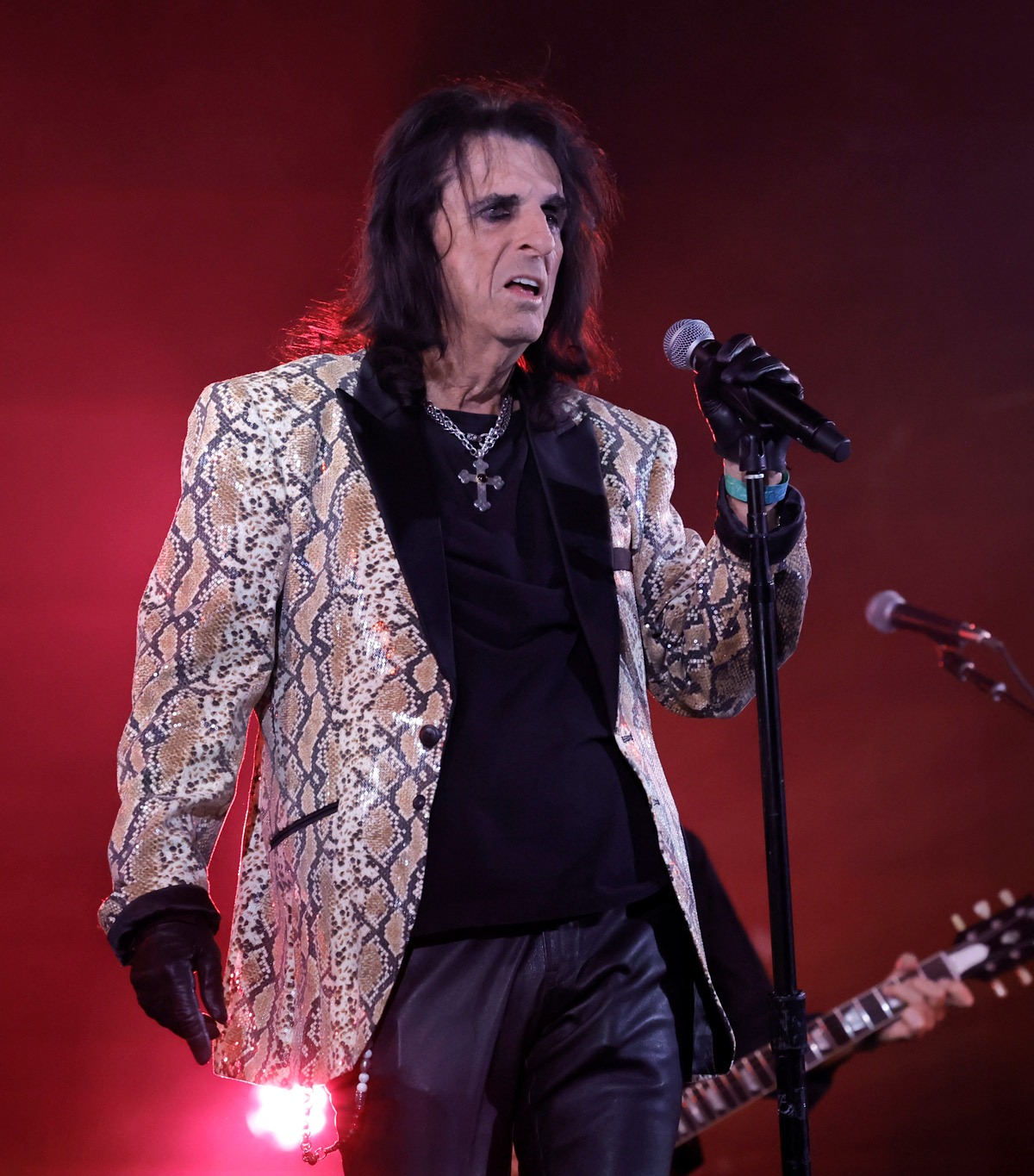
During your first run with Alice, you brought elements of aggression and danger to his music, which have never left. How do you measure your impact on Alice's sound?
“When I first joined Alice back in the '80s, I sat down with him before doing that Nightmare Returns Tour, and I said, ‘Look, you don't want to sound like Alice survived rehab. You want to come back as a nuclear version of who you were.’ And there was such powerfully violent music out there like Ozzy Osbourne, Van Halen, and all these amazing bands, and we had to compete on that level.
“So, that's how Alice and I generated that first tour and the heavy records that came after. That power and the response we got from the audience were amazing, and it showed that many people didn't expect it. A lot of people were worried about what Alice would sound like, but as soon as we came out, we hit them hard, and that silenced everyone.
“I remember that even the classics had a heavier feel. We decided with Shep Gordon to pay homage to the early stuff and keep the feel, but we made it heavier. That Detroit rock, classic vibe never left. But the power that Alice displayed during those two tours we did together, I'd say that it's still vital and more current in many ways. So, I think, yeah, I think an influence that stayed there.
“But, having said that, Alice has some insane creatives working with him. I may have had an impact, but Alice is a genius, and he's more than covered when it comes to having people around him and being in a creative environment.”
One of the tour's memorable moments was when Nita hopped on stage with all of you. How did you navigate going from three guitars to having four?
“Yeah, that was a lot of fun. Nita came on for School's Out, and the structure of that song is very basic. I remember that Nita and I were in the dressing room, and we were laughing, which was so funny. Nita has been a good friend and a supporter of mine for a long time, and I have been for her, too. I love what she does. I love the way she plays.
Nita and I were laughing, looking at each other, like, ‘This is kind of a bucket list kind of thing, isn't it?’
“We were laughing, looking at each other, like, ‘This is kind of a bucket list kind of thing, isn't it?’ We've always wanted to do a show together; hopefully, it won't be the last time we play together.
“But, with the four-guitar thing, Nita and I, we're smart enough not to saturate everything with the metal sounds that we have. So, we stepped back when needed, then stepped up to the front of the stage when it was called for.”
I'd be remiss if I didn't bring up the machine gun guitar. What challenges did you face trying to resurrect it?
“At first, they looked at making a new one, but there wasn't enough time because it was complicated. So, they found the original – there are three out there – but they found the original. It was up at the Hard Rock Cafe in New Orleans for a long time, and then the flood happened, which ruined it.
“So, they chucked it into this warehouse, the neck got cracked, and it was jacked up pretty bad. But we wanted to find a way to have it in the show, so I had my luthier fix it up as best he could. He did a great job, but it's unplayable.
“If you were at any of the shows, you'd notice that I didn't play it. It was roughed up pretty good after that flood, and there wasn't enough time to get it working. But they could at least assemble it and make it look functional.”
Back in the day, it shot fire. But this time, it looked as if only smoke was spewing out.
“Yep, that's true. We wanted it to shoot fire, but we would have had to hire a pyro guy to come on tour, and then each city, we would have had to have somebody come out and watch the whole thing. So, what they did instead was they used this cryo-smoke stuff.
“So, for me, when I played the thing in the '80s, it felt like I had this flamethrower gun guitar. But on this tour, I had a fire extinguisher gun, so I guess I was putting out the fires instead of starting them this time. [Laughs].
“But overall, it was cool because Alice and I have a tongue-in-cheek attitude toward it. But we both love the energy that the guitar brings, and it's important to my image and my era of the band. I'm glad we were able to make it work in some way.”
The machine gun guitar aside, what guitars and gear are you using these days?
“Well, they have everybody running through a Kemper. It's a great live amp, and it's supposed to have a lot more nuance and different options, and you can download sounds and put them in there.
We had the in-ears, and we had the Kemper. I had trouble getting used to that because it was an entirely different sonic environment
“It's digitally generated, so what you do is you have a foot pedal in front of you, and it will say ‘clean sound,’ ‘solo,’ ‘flange,’ or whatever sort of effect. And each time you hit a pedal, it's got a different guitar sound, and you can change it as you want or need.
“I'm much more into amps; that's my thing, but the Kemper is cool and works well enough. But I'm used to having it set up with a bunch of Marshall stacks back there; that's my thing.
“Like I said before, we had the in-ears, and we had the Kemper. I had trouble getting used to that because it was an entirely different sonic environment. As far as guitars are concerned, as soon as the announcement was made, Schecter immediately stepped up to the plate for me.
“And I'm the type of person who has a sense of loyalty to people that treat me right, so I said, ‘You know what, let's give me a bunch of Schecter guitars, and I'll play them exclusively on this tour.’ And so, they threw down and gave me a bunch of them. They customized them for me and set up the neck and the action.
“Of course, I had to bring it to my guy as well. But the type of pickups in there and everything, Schecter, was very accommodating. I have to say, they are one of the best customer service companies, and they're all true rock 'n' roll people. They're the real deal, and they're a great guitar company.”
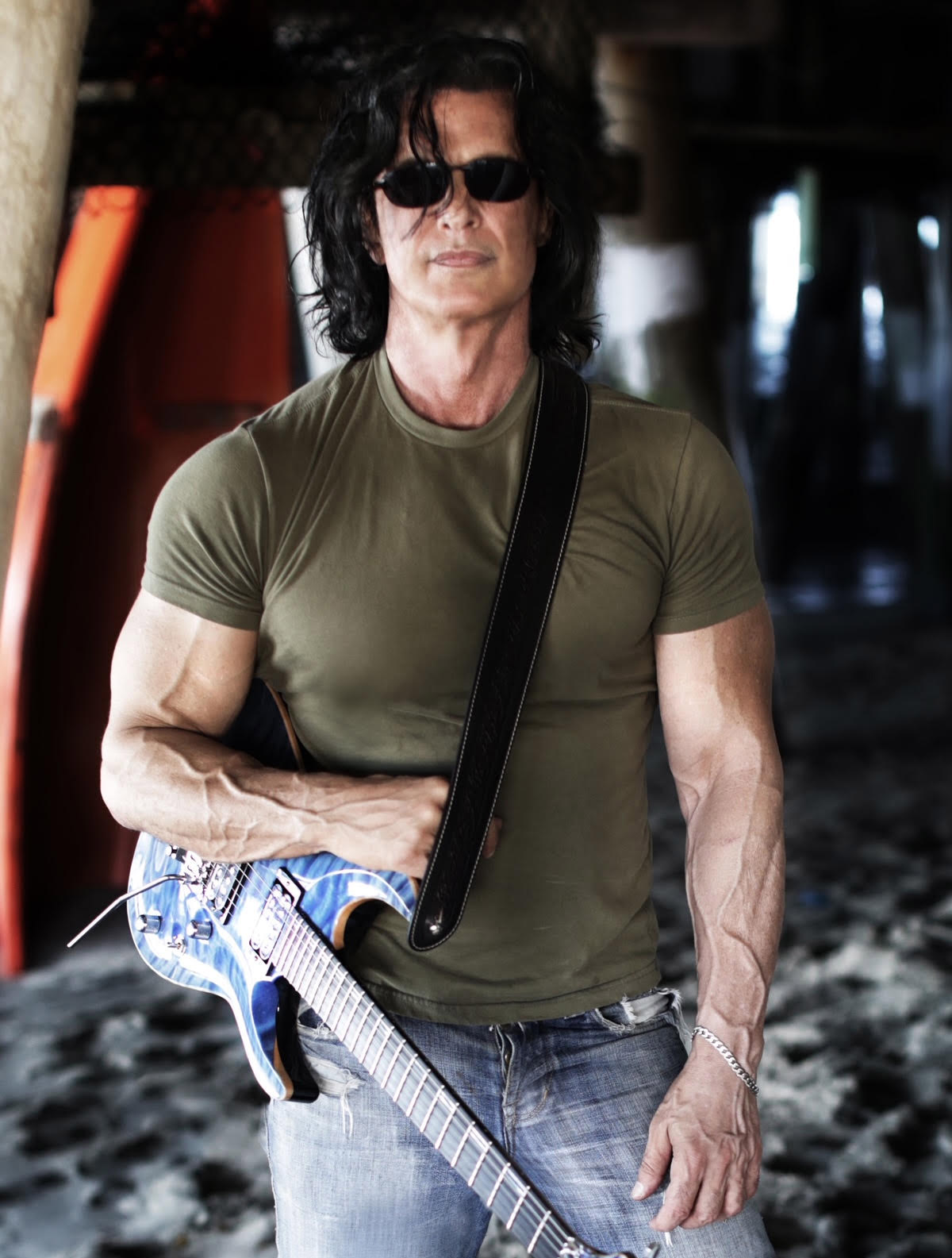
In my opinion, Schecter is a brand that doesn't get enough love. Aside from what you've mentioned, what makes them conducive to your sound and style?
“What I look for is the action on the neck and how well I can use the tremolo bar. For me, and the way that I play, that setup needs to be seamless. I can't have any issues with either of those things.
“But with Schecter, the necks were nice, and once I got my guy to lower the action and get it to the point where I felt it was comfortable with my fingers – my hands are huge – it was perfect. Because my hands are so big, I need to have them set up in a way where the strings are a certain distance from each other and everything.
“What's also great is that Schechter's default neck alignment is spot on for me. So that was a big deal. And they have things like a Sustainiac pickup that they can give you as an option, which doubles the sustain, and you can hold the note forever.
As far as it resonating as destiny, I didn't get that as much as it was us re-establishing our friendships through the beauty of music
“There used to be a thing called a Sustainer, and it's like that, but a lot more functional because it's just right at your fingers. So, those guitars, combined with the Kemper and the in-ears, is what I used, and it took some getting used to, but it all worked out in the end.”
At the onset of this tour, you were looking at this with an open mind but had no definitive future plans with Alice. Has that changed?
“Well, I'm open to a lot. I would think that Nita may intend to come back. But she also has some real career decisions because she's got a viable solo career, and she's still out there killing it with Demi Lovato, too.
“So, I'm sure there are a lot of plates that must be spinning, and we'll see what happens. But yes, I'm open to any discussions. It comes down to me, Alice, Shep, Bob Ezrin, and all the people in the band; we're all friends and love each other. So, it's just gonna depend on how things shake out from here on out, but my initial notion was that I would sign on for five or six weeks, and that might be it.”
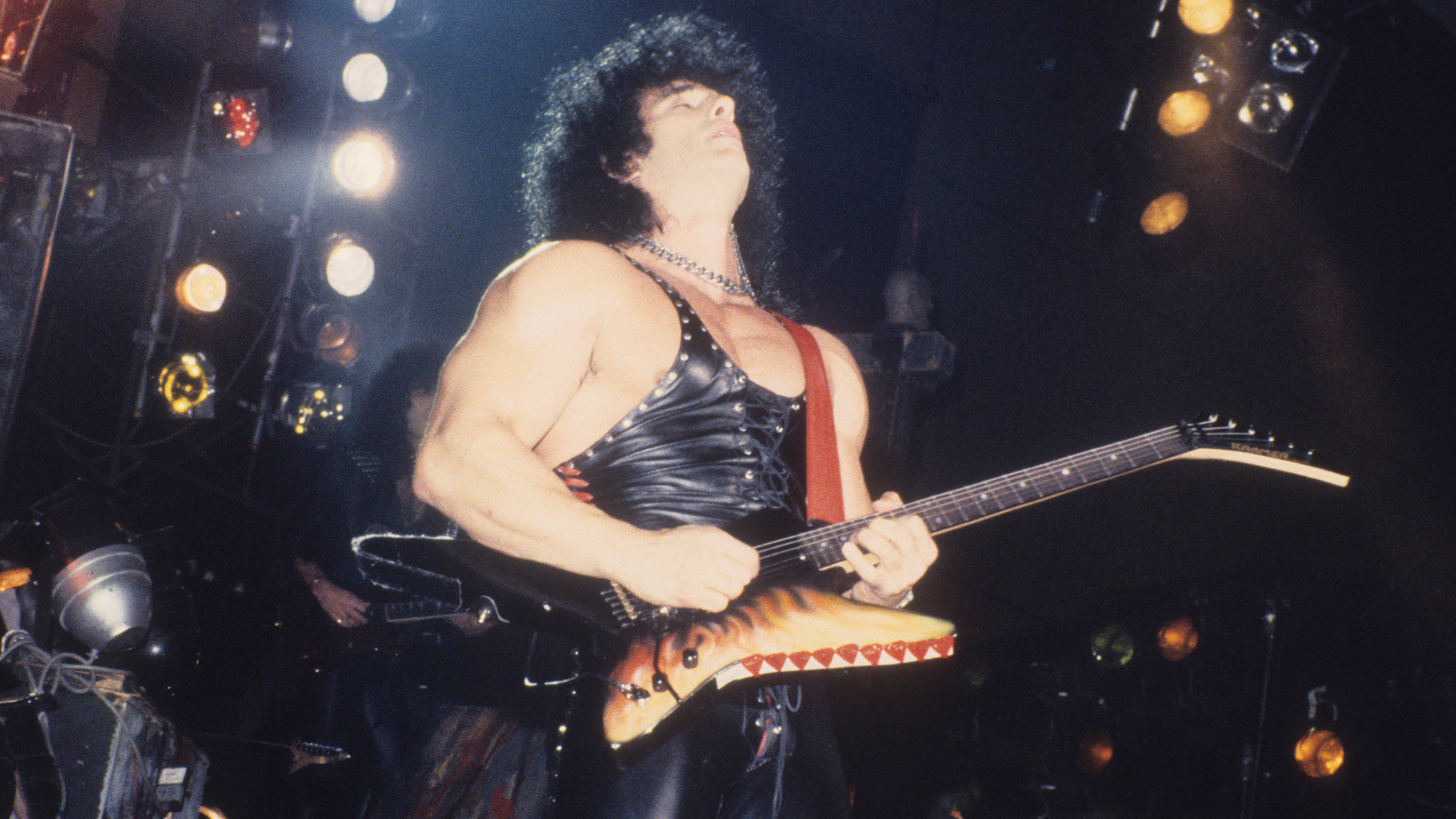
With the tour in the books, what are your overarching thoughts on what must be a full-circle moment for you?
“I didn't expect it. But the thing is, I stepped into a Lamborghini-type situation because of how good this band is. The people in the band are so nice to the crew, and everyone involved is very talented and detail-oriented. We all got along as friends, and that was incredible, too.
“Even the bus was awesome, and our bus driver, Deuce, was a badass and just a cool guy. I honestly can't say that there was one aspect of it that I didn't like, and I had a great time doing it.
“In terms of the full circle thing, it's funny; I just stepped in and started doing it, but it didn't seem unusual or even that different from before. Of course, the band members, the sound, and everything were radically different, but the feeling of being on stage with Alice, playing those songs, didn't feel weird to me.
“And the fact that Alice was at the head of it and spearheading everything made it feel like I was back with the family. Alice and Sheryl Cooper, and all those people, once we got out there playing music and hanging out again, I really did feel like I was home.
“So, I got the opportunity to play great music with them, which was all positive. As far as it resonating as destiny, I didn't get that as much as it was us re-establishing our friendships through the beauty of music.”
Andrew Daly is an iced-coffee-addicted, oddball Telecaster-playing, alfredo pasta-loving journalist from Long Island, NY, who, in addition to being a contributing writer for Guitar World, scribes for Bass Player, Guitar Player, Guitarist, and MusicRadar. Andrew has interviewed favorites like Ace Frehley, Johnny Marr, Vito Bratta, Bruce Kulick, Joe Perry, Brad Whitford, Tom Morello, Rich Robinson, and Paul Stanley, while his all-time favorite (rhythm player), Keith Richards, continues to elude him.

